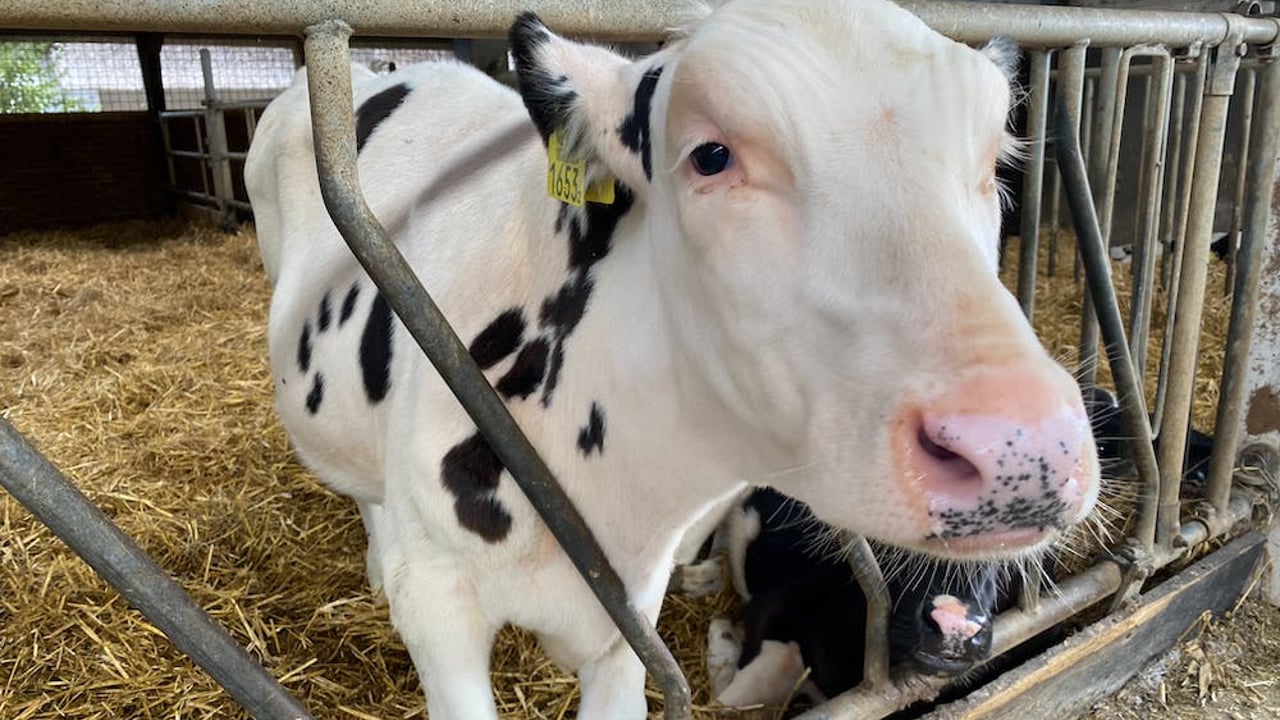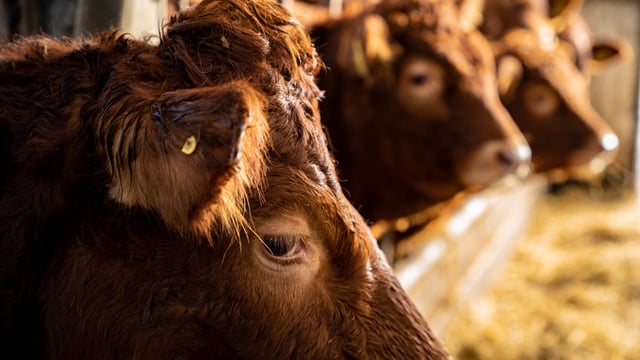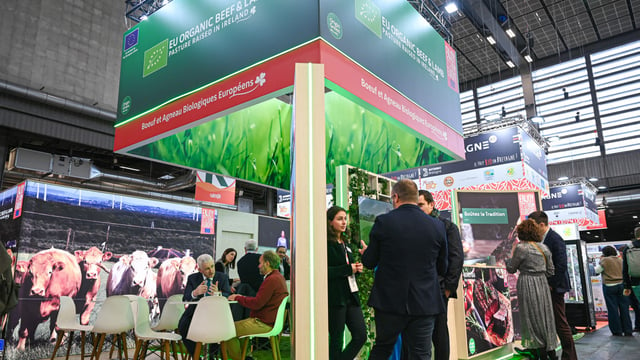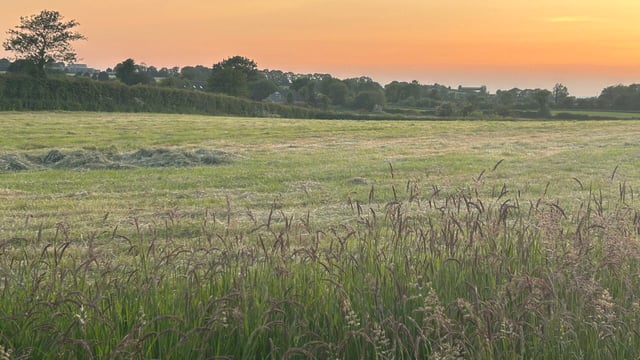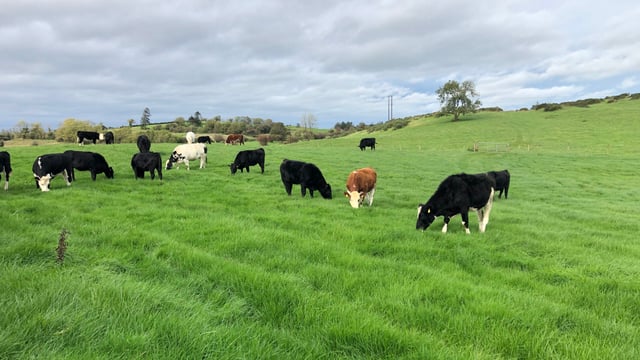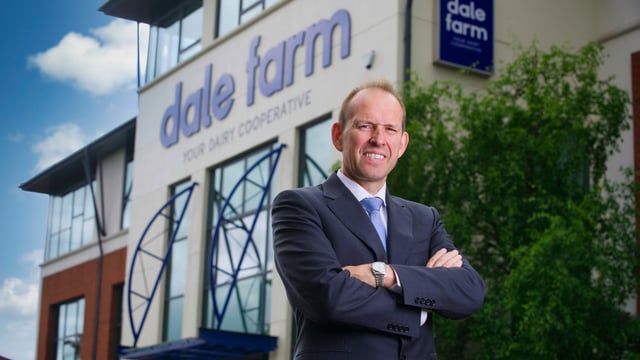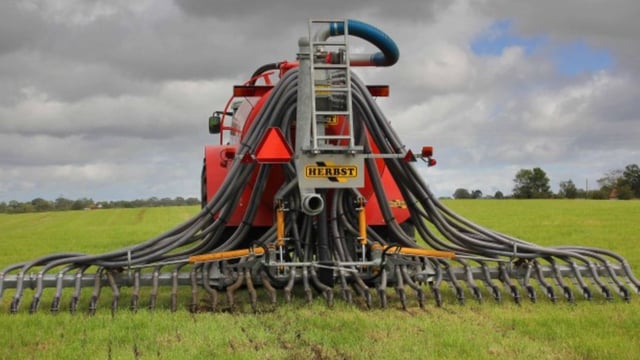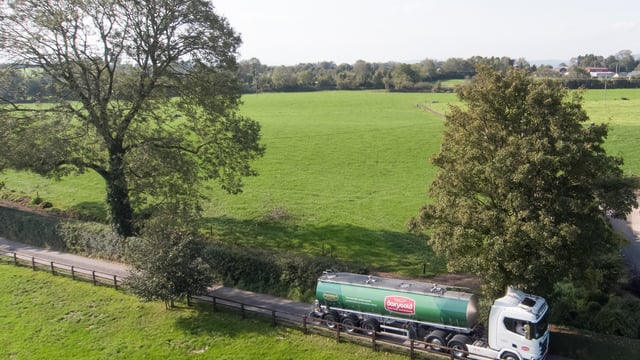Calls for 'straw bedding and stock-boarded pens' for calves at marts
Straw bedding and stock-boarded pens should be provided for all calves at marts, according to a new dairy husbandry policy document published today (Thursday, December 14).
The policy document developed by the Irish Farmers' Association (IFA) also states that mart operators should strive to "minimise overcrowding of calf pens".
It also recommends that the amount of time calves spend at livestock marts during sales should be "minimised".
These are just three out of 22 "actions" that dairy farmers, industry stakeholders and government are being urged to adopt by the IFA to improve the welfare of calves.
According to Stephen Arthur, IFA Dairy chair, the "success and reputation" of the dairy sector is reliant on "proper management" of dairy bred calves.
The IFA first developed a policy on dairy calf management and their welfare in 2019.
Arthur said that since then "new technologies and breeding tools have become available to farmers to improve dairy calf welfare and dairy beef production".
He added: “We felt it was timely to update our policy position to reflect these improvements and identify further areas that farmers can target."
Calves
The IFA has stressed in its new Dairy Calf Husbandry Policy document that "it has not and will not tolerate the mistreatment of calves on farm, at calf sales or during transport".
It also sets out in its policy document that dairy farmers should take "full responsibility" for all calves born from dairy herds for the duration of their time on the farm.
Among the key actions that it recommends dairy farmers should adopt include:
- Continued uptake of genotyping;
- Accelerated use of sexed semen;
- Increasing the use of Artificial Insemination (AI) for a longer period throughout the breeding season;
- Adhering to Animal Health Ireland (AHI) guidelines on colostrum intake;
- Attending annual calf care events.
According to Arthur the IFA do "not support" any policy changes that would extend the amount of time calves must spend at the farm of birth prior to sale.
"This would be counter productive for the promotion of improved calf welfare," he said.
Industry
The IFA has also highlighted in the policy that industry stakeholders including AI companies, milk processors and livestock marts, have a role to play in improving calf welfare and has recommended that they adopt a number of actions including:
- Phasing out calf slaughter as set out in the Irish Co-operative Organisation Society (ICOS)charter.
- Providing competitive pricing on milk replacer, calf meal and all calf rearing equipment.
- Providing straw bedding and stock-boarded pens for calves at mart sales.
- Minimising overcrowding of calf pens at mart sale;
- Minimising the amount of time calves spend at livestock marts during sales.
Meanwhile when it comes to government the IFA said that the principal requirement from the Department of Agriculture, Food and the Marine (DAFM) is to incentivise demand for dairy bred calves through the implementation of a "robust dairy beef scheme".
Other key actions that it believes that government should do is to:
- Develop a scheme that pays €100 to the rearer for the first 12 months of the beef calf’s life and another €100 for the rearer beyond 12 months;
- Ensure all calf-rearing equipment is VAT refundable or alternatively implement a zero VAT rate on such investments;
- Introduce accelerated tax relief on calf housing;
- Have a greater presence of veterinary inspectors at all calf sales;
- Maintain existing regulations that allow calves to move through marts at 14 days or older;
- Implement and support for measures required to maintain market access across Europe;
- Continue to fund research that can "support the maintenance of the live export of calves".
According to the IFA exporters play "a pivotal role" in providing an alternative marketplace for calves.
In the new policy document the farm organisation has urged exporters to comply with all regulations that govern the live transport of calves and also to show "zero tolerance" towards the mistreatment of calves during transport.

